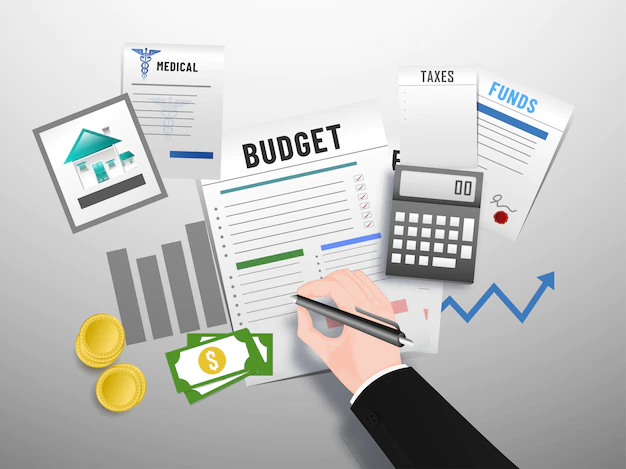Managing your finances can be a daunting task, especially when it comes to budgeting. Creating and sticking to a budget can be challenging, but it is crucial for achieving your financial goals.
It doesn’t matter if you’re trying to save for a down payment on a house or pay off debt, budgeting is essential. In this article, we will discuss ten do’s and don’ts of budgeting to help you manage your finances effectively.
When it comes to budgeting, there are several things you should do to ensure you stay on track. One of the most important things is to make a plan and stick to it.
You should also prioritize your expenses and cut back on unnecessary spending. Additionally, tracking your expenses is crucial for staying within your budget.
On the other hand, there are also several things you should avoid when budgeting. One of the most common mistakes people make is not accounting for unexpected expenses.
It’s also essential to avoid overspending on credit cards and taking on too much debt. By following these do’s and don’ts of budgeting, you can take control of your finances and achieve your financial goals.
Regardless of what we’ve said so far, there’s still more do’s and don’ts of budgeting that you absolutely must know. This article will explore the 10 main do’s and don’ts of budgeting.
The Do’s of Budgeting
When it comes to budgeting, there are several things you can do to set yourself up for financial success. Here are some of the most important do’s of budgeting:
1. Prioritize Your Goals
Before you start creating a budget, it’s important to identify your financial goals. This could include saving for a down payment on a house, paying off debt, or building an emergency fund.
Once you’ve identified your goals, prioritize them based on their importance and urgency. This will help you stay focused and motivated as you work to achieve them.
2. Create a Budget
Creating a budget is one of the most important things you can do to take control of your finances.
Start by gathering all of your financial information, including your income, bills, and debts.
Then, create a budget that outlines your monthly income and expenses. Be sure to include all of your bills, as well as any discretionary spending, such as entertainment or dining out.
3. Control Your Spending
Once you’ve created a budget, it’s important to stick to it. This means controlling your spending and avoiding unnecessary purchases.
One way to do this is to track your spending and identify areas where you can cut back. For instance, you might try packing your lunch instead of eating out, or canceling subscriptions you don’t use.
4. Build an Emergency Fund
One of the most important things you can do to protect yourself financially is to build an emergency fund. This should be a separate savings account that you only use in the event of an emergency, such as a job loss or unexpected medical expense.
Aim to save at least three to six months’ worth of living expenses in your emergency fund.
5. Save Money
Finally, one of the best things you can do for your finances is to save money whenever possible. This could include negotiating bills, shopping around for better deals, or using coupons and promo codes. When you save money on everyday expenses, you’ll have more money to put towards your financial goals.
By following these do’s of budgeting, you’ll be well on your way to achieving financial success. Remember to stay focused, stay motivated, and stay committed to your goals.
Now let’s move on to the don’ts of budgeting.
The Don’ts of Budgeting
When it comes to budgeting, there are a few common mistakes that people tend to make. Here are some don’ts to keep in mind as you work on your budget:
1. Don’t Fear Your Finances
One of the biggest mistakes you can make when it comes to budgeting is to be afraid of your finances. If you’re afraid to look at your bank account or credit card statements, you’re not going to be able to make informed financial decisions. Instead, face your finances head-on and take control of your money.
2. Don’t Make Hasty Financial Decisions
Another common mistake is to make hasty financial decisions. If you’re feeling overwhelmed by your finances, it can be tempting to make a quick decision just to get it over with. However, this can lead to more problems down the road. Take your time and make informed decisions based on your budget and financial goals.
3. Don’t Ignore Your Debts
Ignoring your debts is another mistake that can have serious consequences. If you’re not paying off your debts, you’re going to accumulate interest and fees, which can make it even harder to get out of debt. Make sure you’re paying at least the minimum amount due on all of your debts, and work on paying them off as quickly as possible.
4. Don’t Overspend on Credit Cards
Credit cards can be a useful tool when it comes to budgeting, but they can also be dangerous if you’re not careful. One of the biggest mistakes you can make is to overspend on your credit cards.
This can lead to high interest rates and fees, which can make it even harder to pay off your debts. Make sure you’re only using your credit cards for necessary expenses, and pay them off in full each month if possible.
5. Don’t Rely Solely on Budgeting Software
While budgeting software can be a useful tool, it’s not a magic solution to all of your financial problems. Don’t rely solely on budgeting software to manage your finances.
Make sure you’re still keeping track of your expenses, debts, and balances manually, and that you’re making informed decisions based on your financial goals and priorities.
Remember, budgeting is a process that takes time and effort. By avoiding these common mistakes, you can set yourself up for financial success and achieve your financial goals.
Conclusion
In conclusion, budgeting is an essential tool for financial stability and success. By following the do’s and don’ts of budgeting, you can create a budget that works for you and your financial goals.
Remember, budgeting is not about depriving yourself of the things you love but rather about being mindful of your spending and making sure your money is going towards the things that matter most to you.
One of the most important things to keep in mind is to reward yourself for sticking to your budget. Consider setting aside a small amount of money each month for a treat or a fun activity. This will help you stay motivated and feel good about your progress.
When it comes to budgeting, payroll is a key factor to consider. Make sure you are taking into account all of your income sources and creating a budget that is realistic and achievable.
Overall, budgeting takes time and effort, but the benefits are well worth it. By following the do’s and don’ts of budgeting, you can take control of your finances and achieve your financial goals.
YOU SHOULD ALSO READ:










